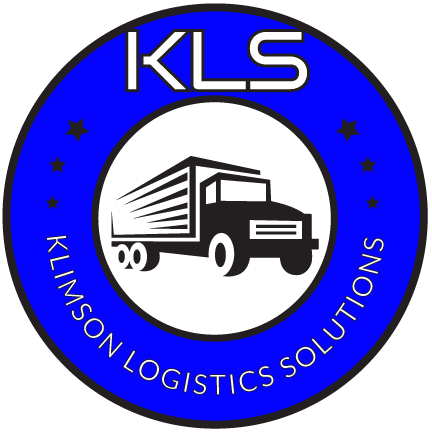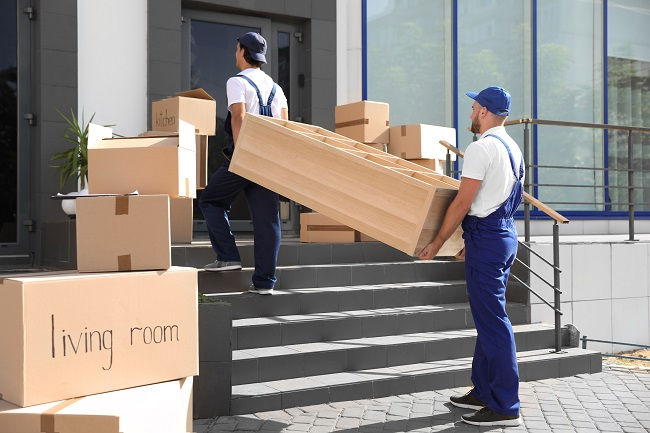Discover the Benefits of FTL Shipping: Is It Right for Your Business?
- KLS

- Oct 14, 2024
- 7 min read
Updated: Jan 28, 2025
Are you looking for a way to ship large amounts of goods quickly and safely? Full Truckload (FTL) shipping might be the answer. This method involves using an entire truck for your shipment, which can offer several advantages. But is it the right choice for your business? Let's explore the benefits, challenges, and key factors to help you decide.
Understanding Full Truckload (FTL) Shipping
Definition and Basics
Full truckload shipping services for large shipments involve using the entire capacity of a truck for one shipment. This is different from less-than-truckload (LTL) shipping, where multiple shipments share the same truck space. FTL is ideal for large shipments that need the whole truck.
How FTL Shipping Works
In FTL shipping, a single shipment fills the entire truck. This means the truck goes directly from the pickup point to the delivery location without stopping for other loads. This direct route helps in reducing transit times and minimizing the risk of damage.
Key Differences from LTL Shipping
FTL shipping is different from LTL shipping in several ways:
Space Usage: FTL uses the whole truck, while LTL shares space with other shipments.
Transit Time: FTL is faster because it doesn't stop for other loads.
Risk: There's a lower risk of damage or loss in FTL since the shipment isn't handled multiple times.
Advantages of FTL Shipping

When considering Full Truckload (FTL) shipping for your logistics needs, there are several benefits to keep in mind.
Faster Transit Times
FTL shipments travel directly to their destination without additional stops or transfers. This means your cargo can arrive more quickly, helping you optimize delivery schedules and improve customer satisfaction. Fast and reliable expedited shipping for urgent deliveries is a key advantage of FTL.
Lower Risk of Damage or Loss
With FTL, your goods are the only ones on the truck, reducing the risk of damage or loss. The fewer times your shipment is handled, the lower the chance of something going wrong. This makes FTL a safer home option for valuable or fragile items.
Ideal for High-Volume Shipments
FTL is perfect for large shipments that can fill an entire truck. If you have a high volume of goods to transport, FTL can be more cost-effective and efficient. This is especially true for businesses that regularly ship large quantities of products.
Challenges of FTL Shipping
Higher Costs for Smaller Shipments
FTL shipping can be expensive if you don't have enough goods to fill an entire truck. Shipping smaller loads this way often leads to higher costs because you're paying for the whole truck, even if it's not full. This can be a big drawback for businesses that don't ship large volumes regularly.
Environmental Impact
Using a full truck for smaller shipments can also have a negative impact on the environment. More trucks on the road mean more fuel consumption and higher emissions. This is something to think about if your business is trying to be more eco-friendly.
Limited Flexibility
FTL shipping usually involves a set route and schedule, which can limit flexibility. If you need to change the delivery route or timing, it can be difficult and may incur extra charges. This can be a hassle for businesses that need more adaptable shipping options.
When to Choose FTL Over LTL
Shipment Size Considerations
When deciding between FTL and LTL, the size of your shipment is a key factor. FTL shipping is ideal for large shipments that can fill an entire truck. If your freight is smaller, LTL might be more cost-effective.
Time-Sensitive Deliveries
FTL transport is faster because it involves fewer stops. If your cargo needs to arrive quickly, FTL is the better choice. LTL can be slower due to multiple stops and transfers.
Risk Management
FTL shipping reduces the risk of damage or loss since your goods stay on one truck for the entire journey. This is especially important for high-risk or fragile products. LTL shipments are handled more often, increasing the risk of damage.
Cost Factors in FTL Shipping

Fuel and Surcharges
Fuel costs are a major part of FTL shipping expenses. Fuel prices can change often, affecting the total cost. Surcharges may also be added to cover these changes.
Distance and Route
The distance your shipment travels and the route taken can impact costs. Longer distances usually mean higher costs. Choosing the best route can help save money.
Freight Characteristics
The type of goods you are shipping can also affect the cost. Items that need special care or handling may cost more to ship. Cost-effective LTL shipping options for small businesses might be better for smaller loads.
Optimizing Your FTL Shipments
When you choose FTL shipping, there are several ways to make it work better for your business. Maximizing efficiency can lead to significant savings. Here are some key strategies to consider:
Choose a Reliable Logistics Partner: Finding a reliable logistics partner for seamless shipping can make a big difference. Look for companies that specialize in FTL and LTL services, like Klimson Logistics Solutions, which focuses on client care and authenticity.
Plan Your Loads Carefully: Proper load planning ensures that you use the truck space efficiently. This can help reduce costs and improve delivery times.
Maintain Strong Carrier Relationships: Building a good relationship with your carrier can lead to better service and pricing. Regular communication helps in understanding their capabilities and limitations.
Industries Benefiting from FTL Shipping

Retail and E-commerce
Retailers and e-commerce businesses often rely on FTL shipping to move large quantities of goods to big-box retailers or other enterprise merchants. FTL can be beneficial as the full truck carries only your inventory, providing greater control over the entire shipment. This method ensures faster and more direct deliveries, which is crucial for maintaining a steady supply chain.
Manufacturing
Manufacturing companies benefit from FTL shipping by transporting large volumes of raw materials and finished products. This method helps in meeting production schedules and reducing downtime. The Best freight logistics services in the USA often cater to these needs, ensuring timely and efficient deliveries.
Agriculture
Agricultural businesses use FTL shipping to move bulk quantities of produce and livestock. This method is ideal for transporting perishable items quickly and safely. The seamless commercial relocation services for companies in the agricultural sector ensure that goods reach their destination in optimal condition.
Environmental Considerations in FTL Shipping
Carbon Footprint
FTL shipping can have a significant impact on the environment due to the dedicated use of trucks for single shipments. This often results in higher carbon emissions compared to other shipping methods. Sustainable freight shipping practices for eco-friendly businesses can help mitigate this impact by optimizing routes and improving fuel efficiency.
Sustainable Practices
Adopting green practices in FTL shipping is essential for reducing environmental harm. Companies can implement measures such as using fuel-efficient vehicles, adopting alternative fuels, and ensuring proper maintenance of trucks. These steps not only help the environment but can also lead to cost savings in the long run.
Regulatory Compliance
Compliance with environmental regulations is crucial for businesses engaged in FTL shipping. Regulations may include limits on emissions, requirements for regular vehicle inspections, and mandates for using cleaner fuels. Staying compliant not only avoids legal issues but also promotes a company's commitment to sustainability.
Case Studies: Successful FTL Implementations
Retail Success Story
A major retail chain improved its supply chain by switching to FTL shipping. This change led to faster restocking times and fewer damaged goods. The company also saw a reduction in overall shipping costs by optimizing their load planning.
Manufacturing Efficiency
A leading manufacturer adopted FTL shipping to streamline its operations. By doing so, they managed to cut down on transit times and improve delivery reliability. This shift also allowed them to better manage their inventory levels, resulting in increased production efficiency.
Agricultural Logistics
An agricultural business specializing in fresh produce benefited from FTL shipping by ensuring timely deliveries. This method helped maintain the freshness of their products and reduced spoilage rates. The company also experienced improved customer satisfaction due to more reliable delivery schedules.
Future Trends in FTL Shipping
Technological Advancements
Real-time freight tracking solutions for transparency are becoming a game-changer in the logistics industry. These systems allow businesses to monitor their shipments in real-time, providing greater visibility and control over the supply chain. This technology helps in reducing delays and improving customer satisfaction.
Market Dynamics
The demand for FTL shipping is expected to grow as e-commerce continues to expand. Companies are increasingly relying on FTL to meet the high-volume demands of big-box retailers and enterprise merchants. This shift is driving changes in how logistics providers operate, with a focus on efficiency and speed.
Sustainability Initiatives
FTL shipping companies are adopting more sustainable practices to reduce their environmental impact. This includes using fuel-efficient vehicles, optimizing routes to minimize fuel consumption, and exploring alternative energy sources. These efforts are not only good for the planet but also help companies meet regulatory requirements and appeal to eco-conscious consumers.
The future of Full Truckload (FTL) shipping is bright and full of exciting changes. With advancements in technology and logistics, FTL shipping is becoming more efficient and reliable. If you want to stay ahead in the game and learn more about these trends, visit our website today!
Choosing between FTL and LTL shipping can be a big decision for your business. FTL shipping offers faster delivery times and less risk of damage, making it great for large or urgent shipments. However, it can be more costly and less eco-friendly. On the other hand, LTL shipping is more budget-friendly and better for smaller loads, but it might take longer and have a higher risk of damage. Think about your shipment size, budget, and how quickly you need your goods to decide which option is best for you.
Frequently Asked Questions
What is FTL shipping?
FTL stands for Full Truckload shipping. It means renting an entire truck for your shipment, which goes straight to the destination without extra stops.
How does FTL shipping differ from LTL shipping?
FTL shipping uses the whole truck for one shipment, while LTL (Less Than Truckload) shipping combines shipments from different companies in one truck.
What are the main benefits of FTL shipping?
FTL shipping offers faster transit times, a lower risk of damage or loss, and is ideal for large or urgent shipments.
Are there any downsides to FTL shipping?
Yes, FTL shipping can be more costly for smaller shipments and is less eco-friendly because it uses a whole truck for one shipment.
When should I choose FTL over LTL shipping?
Choose FTL if you have a large shipment, need faster delivery, or want to reduce the risk of damage.
What factors affect the cost of FTL shipping?
The cost depends on fuel prices, the distance and route, and the type of freight you are shipping.
How can I optimize my FTL shipments?
Pick the right carrier, plan your loads well, and use technology to track your shipments for better efficiency.
Which industries benefit most from FTL shipping?
Industries like retail, manufacturing, and agriculture often benefit the most from FTL shipping due to their large shipment sizes and time-sensitive needs.




Comments